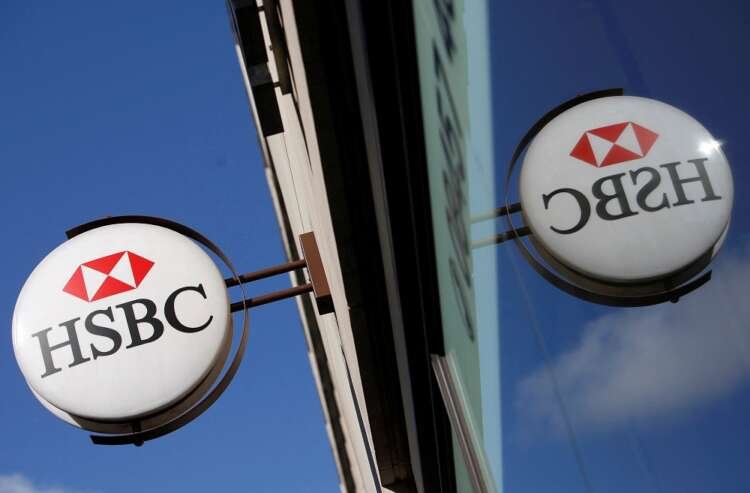HSBC oversold risks of $35 billion Asia spin-off, investor Ping An thinks – source


By Selena Li, Lawrence White and Anshuman Daga
HONG KONG/LONDON (Reuters) – HSBC overstated the risks of spinning off its Asia unit when it rebuffed such a proposal by shareholder Ping An Insurance Group, a source familiar with the Chinese insurer’s thinking said, adding the move could unlock up to $35 billion in value.
HSBC, which makes the bulk of its sales and profit in Asia, came under pressure from Ping An, its biggest shareholder, in April to explore options including listing its mainstay Asia business to increase shareholder returns.
The detailed rebuttal as described by the source with knowledge of Ping An’s thinking represents the investor’s most detailed pushback yet of HSBC’s strategy, and signals Ping An’s intention to continue the dispute.
Details of Ping An’s internal discussions come after HSBC on Aug. 1 itself pushed back against the Chinese investor’s proposals while reporting its half-year earnings. Ping An has not confirmed or commented publicly on the break-up proposal.
HSBC said a break-up would mean a potential long-term hit to the bank’s credit rating, tax bill and operating costs, and bring immediate risks in executing any spinoff or merger.
Ping An declined to comment, while a spokesperson for HSBC said the bank had nothing to add to comments made by its executives last week.
While activist investors sometimes acquire a stake in a big bank and confront management on how it is run, it is unusual for a Chinese company such as Ping An, whose top shareholders include state-backed entities, to take such a proactive stance.
Ping An believes a spin-off would generate an extra $25-$35 billion in market value and release over $8 billion in capital, the source said, citing “external” analysis.
The source declined to be identified due to the sensitivity of the matter.
HSBC’s current market capitalisation is around $133 billion.
Responding to HSBC’s argument that spinning off its Asian business will hit global synergies, the source said HSBC would remain a major shareholder of the unit after the separation and both parties could enter into cooperation agreements.
Ping An owns an 8.3% stake in HSBC, worth around $11.4 billion, according to Refinitiv data.
HSBC shares rose 0.6% on Thursday, while the benchmark FTSE 100 index fell 0.26%. The British bank’s shares have fallen by about a quarter since Ping An on Dec. 7, 2017 reported it had built up a more than 5% stake in HSBC.
HSBC shares slump since Ping An raised stake: https://fingfx.thomsonreuters.com/gfx/mkt/gdpzyomlwvw/HSBC%20shares.jpg
UNDERPERFORMANCE
Asia is HSBC’s biggest profit centre, with the region’s share of the lender’s profit rising to 69% in the first half from 64% a year ago.
The spat between HSBC and Ping An shows the challenges facing the British bank, as it attempts to navigate geopolitical tensions between the U.S., Britain and China amid criticism from lawmakers in the West over the bank’s activities in Hong Kong.
HSBC Chief Executive Noel Quinn said on Aug.1 the bank’s dialogue with Ping An “has been purely around commercial issues”, with no political aspect.
The source said HSBC performed better than expected in the second quarter, but almost all its revenue growth was dependent on “a phased, short-lived and uncontrollable interest rate hike cycle”.
The bank’s underperformance has not yet been “fundamentally addressed” and it was in urgent need of radical change, the source added.
Dual-listed HSBC posted a pretax profit of $9.2 billion for the six months to June 30, down from $10.84 billion a year ago but beating the $8.15 billion average estimate of analysts compiled by the bank.
(Reporting by Selena Li in Hong Kong, Lawrence White in London and Anshuman Daga in Singapore; Writing by Sumeet Chatterjee; Editing by Kim Coghill, Kirsten Donovan)
A spin-off is a corporate action where a company creates a new independent company by selling or distributing new shares. This often occurs to unlock value or focus on core operations.
Market capitalization is the total market value of a company's outstanding shares. It is calculated by multiplying the share price by the total number of shares and is used to assess company size.
Shareholder return refers to the total return on investment that shareholders receive from owning shares in a company, including dividends and capital gains from stock price appreciation.
A credit rating is an assessment of the creditworthiness of a borrower, typically expressed as a letter grade. It helps investors gauge the risk associated with lending money to that borrower.
An activist investor is an individual or group that purchases a significant stake in a company to influence its management and operations, often seeking to increase shareholder value.
Explore more articles in the Top Stories category











